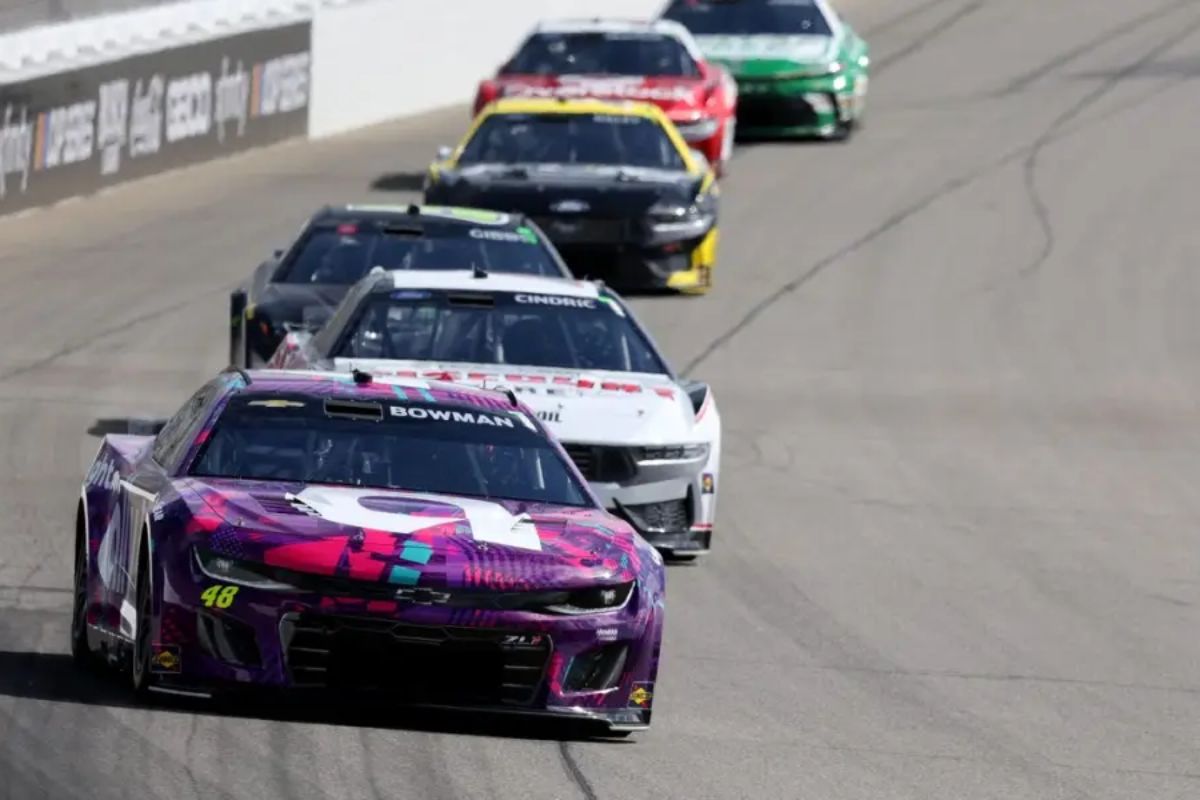Richard Petty Criticizes NASCAR’s Playoffs Format: Richard Petty‘s recent remarks on the NASCAR playoff format raise critical questions about the future of competitive structure in the sport. By asserting, “Don’t see ’em changing,” Petty highlights a tension between tradition and innovation, suggesting that the current system effectively fosters unpredictability and excitement. While he concedes the possibility of minor tweaks, his views reflect a broader sentiment among stakeholders regarding the value of consistency in championship narratives.
Key Highlights
- Richard Petty believes the current NASCAR playoff format will remain unchanged for the foreseeable future.
- He values unexpected race outcomes for generating interest and enhancing championship narratives.
- Minor adjustments to the points standings may be considered, but fundamental changes are unlikely.
- Petty’s perspective aligns with a broader satisfaction among NASCAR supporters regarding the existing playoff structure.
- Concerns exist about the playoff format reducing traditional racing values, but Petty supports the excitement it brings.
NASCAR’s Points System and The Chase
The evolution of NASCAR’s points system, particularly with the introduction of “The Chase for the Cup” in 2004, represents a substantial shift in how championships are contested in stock car racing. Before this change, the points system established by Bob Latford in 1975 served as a foundation that highlighted race finishes over monetary rewards or distance races. This system, while effective, lacked the dynamic nature that modern audiences and competitors expected from a championship format.
The Chase introduced a playoff-style approach, fundamentally altering the competitive landscape. It delineated the season into two distinct phases: the regular season and the playoff bracket. This transformation created a heightened sense of urgency and strategy, as drivers sought to accumulate points throughout the season and to secure their place in the Chase.
The emphasis shifted from consistent performance over a full season to peak performance during critical playoff races, effectively reshaping team strategies and driver mentalities.
For legendary figures like Richard Petty, whose monumental achievements in the 1960s and 1970s would have rendered the current points paradigm almost irrelevant, the Chase highlights a dramatic departure from traditional metrics of success. The points system now rewards adaptability and peak performance, reflecting a broader trend in sports toward playoff formats that engage fans and enhance competition.
Evolution and Changes in The Chase Format in NASCAR
Throughout its history, the Chase format has evolved considerably, reflecting NASCAR’s commitment to enhancing competition and engaging fans. Initially limited to a 10-driver field competing over the final 10 races, the Chase aimed to intensify the championship battle.
However, by 2007, NASCAR expanded the format to include 12 contenders, recognizing the need for broader participation and excitement. This shift was further amplified in 2014, when the playoff field grew to 16 drivers, introducing a three-round elimination system. This groundbreaking approach resulted in a final showdown among four drivers in the season’s last race, intensifying the drama and stakes of the championship.
Additionally, the introduction of a race-win guarantee for playoff eligibility marked a notable turning point. This rule enabled any full-time driver who secures a victory during the regular season to qualify for the playoffs, irrespective of their points standing.
This change has had profound implications, allowing drivers like Harrison Burton to make headlines despite being at the bottom of the points standings before a race. However, it has also sparked debate among fans, who question the fairness of a system that allows less consistent performers to gain post-season recognition at the expense of more established drivers, such as Kyle Busch and Bubba Wallace, who find themselves outside the playoff cutline.
Richard Petty’s View on Playoff Format
Consideration over NASCAR’s playoff format has garnered noteworthy attention, particularly following surprising race outcomes that challenge traditional expectations.
Richard Petty, a revered figure in the sport, recently addressed these concerns during a fan interaction on the “Petty Race Recap.” When asked if the current format would see changes after an upset victory by a last-place car, Petty expressed skepticism regarding noteworthy reforms.
“Due to the upset winner being a last place (in points) car, do you think NASCAR will change something in the format?” – (Petty)
View this post on Instagram
Petty’s perspective aligns with the sentiments of his cousin, Dale Inman, who noted the unpredictability that such outcomes bring to the championship narrative. This collective view suggests resistance to altering a system that has fueled excitement and engagement among fans.
“I don’t see ‘em changing a whole lot. I think they’re pretty satisfied with the way things are right now. There’s a few suggestions I would probably have formed to change the points standings but they don’t listen to me a whole lot.” – (Petty)
Petty and Dale Inman believe NASCAR is content with the existing playoff structure. Unexpected wins can generate interest and drama, enhancing the championship storylines. While fundamental changes may be unlikely, there may be room for tweaks to points standings. The dialogue between fans and drivers reflects a dynamic relationship that could influence future considerations.
“I don’t think they’ll change that and I think it’s perfectly okay for [Harrison Burton] to win it like that. I mean, it just stirs up the championship, you know. And he’ll go to the championship run behind, because he’s only got five playoff points as of right now, You know, maybe that should be changed.” – (Dale Inman)
Impact of Stage Racing and Playoff Points in NASCAR
While stage racing has introduced a tactical layer to NASCAR, its influence on playoff points fundamentally alters the competitive landscape. This system rewards race victories and tactical placements within stages, creating a complex interplay between race performance and playoff advancement. For instance, drivers such as Harrison Burton, who recently secured five playoff points with his Daytona victory, find themselves in a notably advantageous position as they enter the Round of 16.
The allocation of playoff points, particularly those earned during Stage 1 and Stage 2, emphasizes the importance of consistent performance throughout the race. Drivers like Josh Berry and Joey Logano, who earned a playoff point each for their respective stage wins, show how incremental gains can accumulate into a robust advantage.
In contrast, teams like the #21, despite being locked into the playoffs, face considerable disadvantages if they lack playoff points compared to frontrunners like Kyle Larson and Christopher Bell, who hold 28 and 25 points, respectively.
This disparity in playoff points impacts a driver’s starting position in the early playoff rounds and serves as a tiebreaker when standings are equal. As teams plan for stage points, the tactical decisions made during races can have profound implications for playoff success.
Criticisms and Future Outlook
Amid the evolving landscape of NASCAR, Richard Petty has voiced his concerns regarding the current playoff format, suggesting that it may reduce the essence of racing. Petty’s critique stems from a deep-rooted appreciation for traditional racing, where the focus was primarily on completing the entire race distance.
The introduction of stage racing has changed the competitive dynamics, raising questions about the format’s integrity and its reflection of true racing skill. The segmentation of races into stages may detract from the significance of enduring performance throughout the event.
The playoff points and stage bonuses can create confusion for fans and participants as well, complicating the understanding of true race outcomes. As evidenced by Petty’s record, the ability to achieve multiple wins in a season has been substantially curtailed, diminishing the thrill of dominant performances.
While the format aims to introduce new drivers into the playoff conversation, it risks favoring those with fleeting moments of success over consistent excellence. While the current format has its supporters, the potential for further evolution exists. As the sport adapts, it must balance innovation with the foundational principles that have historically defined stock car racing.
News in Brief: Richard Petty Criticizes NASCAR’s Playoffs Format
Richard Petty’s skepticism regarding potential changes to NASCAR’s playoff format highlights a prevailing sentiment within the NASCAR community that values the current structure‘s ability to foster excitement and unpredictability. While minor adjustments may be considered, the overarching consensus appears to favor maintaining the integrity of the established system.
This perspective reflects a deep appreciation for the narratives and competitive dynamics that the existing playoff format successfully cultivates within the sport.
ALSO READ: Richard Petty’s Grand Return: Petty Family to Honor Daytona’s Legacy




